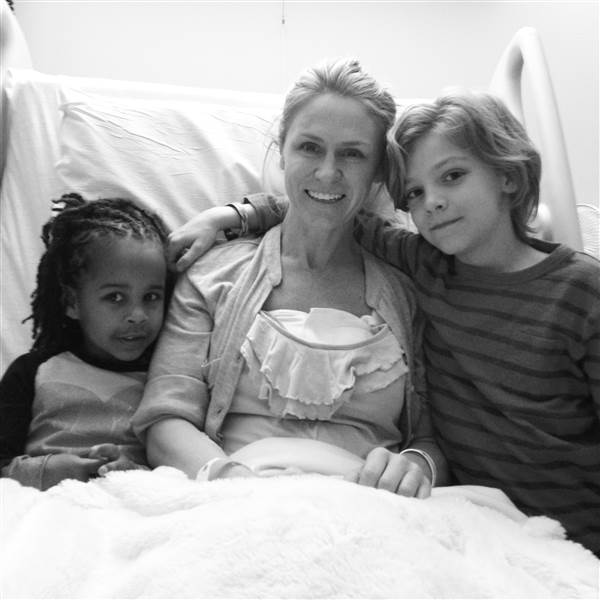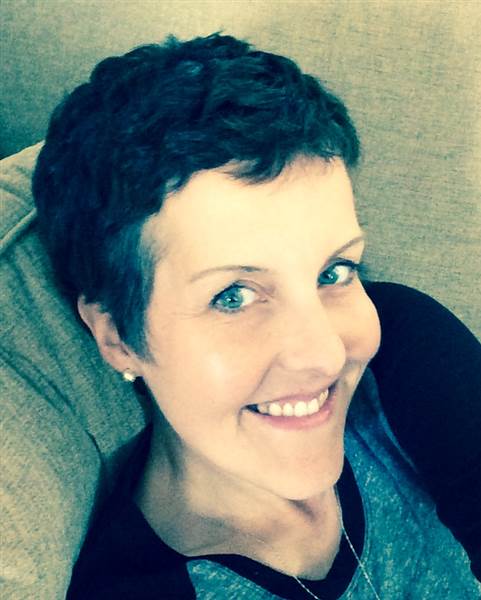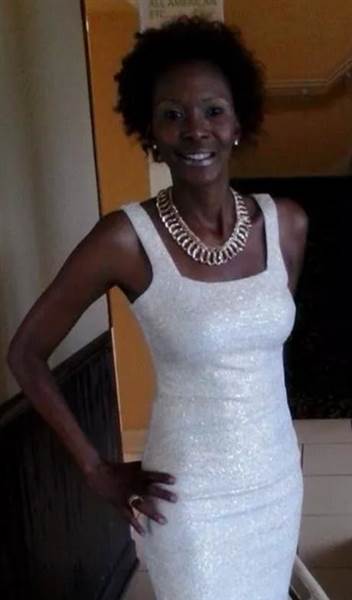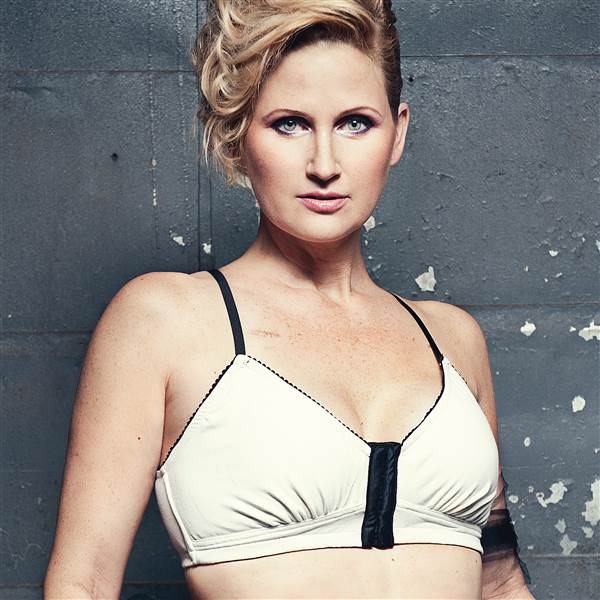5 things I wish I’d known about getting dressed after my mastectomy
May 20, 2015 by admin
Filed under Choosing Lingerie
Dana Donofree, a breast cancer survivor, is the founder of AnaOno Intimates, a lingerie line for women who have undergone breast surgery.
You were prepared for your treatment. You were prepared for your surgery. You read everything you could get your hands on when you were diagnosed with cancer. But nothing prepares you for the day when the post-mastectomy haze clears and you are standing at the mirror, wrapped up like a mummy, convinced the doctors accidentally stitched an elephant to your chest.
You blink at your new body and try to wiggle out of the robe that has become your go-to outfit of choice. Then you stare into your closet. This is not like those pre-cancer days of sighing about not having anything to wear; this is real. As you rack your brain, you realize there wasn’t anything in your research that talked about living life after the mastectomy.
But don’t worry, because I’ve been there. Many of us have. And we’re happy to share all the things we wish we’d known when it was time to ditch the flannel and start dressing like a woman again.
The first thing I noticed post-mastectomy and reconstruction was traditional lingerie no longer fit me. I had no idea putting something as simple as a bra on would be so challenging. I would say I wish I’d known that ahead of time, but in hindsight, not knowing is what put me in a position to change the lives of others and start dressing women after cancer with my lingerie line, AnaOno. Now I get to listen to a lot of women talking about their challenges after a mastectomy, and I know I am not the only one. And neither are you.
1. It’s a work in progress. Emotionally and physically.
Remember, you just had major surgery following cancer treatment, not a Beverly Hills boob job. Your body is going to look and feel different for a while. And that look and feel can change from day to day.
“I wish I would have known my reconstruction process was a work in progress,” says Megan, recently diagnosed in late 2014. “You’re not just waking up from surgery with fabulous, perky boobs. People will say, ‘At least you are getting new boobs as a result of cancer.’ But, it’s more like a six-month science project, and it’s not fun.”

Remember to give yourself a break. You are going to be sore. You are going to have limited range of motion. You are going to have drains, bandages and swelling. Robyn, diagnosed a year ago, says, “Find someone you feel comfortable with, and keep them close. They will be instrumental in helping you heal and helping you get dressed. For me, it was my mother.”

2. It’s OK to stay in your “comfy clothes.”
No one is expecting you to put on your party dress and hit the town. It might be a while before you’re up to raising your arms above your head, and the drains and scar tissue will be uncomfortable. “Treat yourself to an amazing pair of pajamas, and stay in them as much as you want,” Robyn says.
I suggest getting a pair that you can button up or tie in front: It will significantly help with the limited mobility. “Scar tissue is really painful and a constant reminder,” Kelly, diagnosed late 2013, says, “but it fades just like the bad memories of chemo.”

This is the time when as comfortable as possible is completely acceptable. If you miss dressing up, try an oversize men’s silk pajama top and belt it: instant shirtdress.
3. Natural fabric and stretch are your new best friends.
Reconstructed breasts in no way resemble natural breasts. Attempting to wear a top that used to give you killer cleavage may only end in frustration.
“Though your breasts may be the same size as they were before, they are not the same.” says Jeannine, who was diagnosed at 26 and underwent a bilateral mastectomy with latissimus flap reconstruction. “The density, shape and consistency of implants are vastly different than that of normal breast tissue, and radiation can completely alter your skin and muscle. This must be taken into consideration when choosing clothing. Your implants don’t squish into things, and they don’t move for you. I had to get stuck in a few items of clothes in dressing rooms to learn that lesson.”

Look for fabrics like jersey, modal or cotton that have natural give and are soft on your newly sensitive skin and scar tissue. Polyester may be forgiving on the wallet, but not so much on your now immovable breasts. Anything with a little give is going to help mold to you, now that you can no longer mold to it. To compensate, look for wrap tops or flowy tunics. Both allow for room and are forgiving.
4. Tricks of the eye and mind can hide anything.
You are not going to look like you used to, and that is OK. With a little ingenuity, anything is possible.
“Safety pins and flowy dresses will be your best friend to hide your drains,” says Robyn. “You can still dress cute and feel beautiful without everyone wondering what is going on underneath your shirt.” It’s going to be a process. Keep breathing, and stay positive.
“I’d wish I’d known before my mastectomy and reconstruction how a mastectomy would look on me personally,” says Lisa, diagnosed just last year. “There simply is no manner in which to prepare for it. No matter the advice I received, the first, second or third-hand insights others shared with me or the research I did beforehand, the first time I stood in front of a mirror afterwards, naked and vulnerable, I broke down, the shock of my appearance nearly undoing my last shreds of strength.”

Changing your mind-set isn’t always about changing your clothes; it can be as simple as changing your routine. At first you may not be comfortable with your new morning prep, or may lack confidence in it. Find something to add to it that makes you feel good.
Maybe it’s a mood-boosting song to sing along to, or a meditative practice that calms you and sets your intention for the day. Or maybe it’s trying a new makeup look, or indulging in a fantastic body lotion that feels and smells great. Whatever it is, embrace it and go with it. Go loose, or try that new Boho trend. It is all about acceptance of your new body.
5. Unevenness happens. Uncomfortability happens. Find what you feel best in and stick to it.
“I wish I knew reconstruction would be so itchy and, at times, uncomfortable,” says Angela, diagnosed in 2003, 2011 and 2012. “I also wish I knew my breast wouldn’t stay the same shape and would wind up lopsided.”

Loose-fitting tunics or oversize (but trendy) tops are OK. But make sure you still feel good about yourself. Fit is still important — you don’t want to drown your figure.
Personal style is just that: personal. Don’t feel like you need to stay trendy: Classic is always in, as is showing off your personality. This is the time to stay true to your inner self.
“A stranger stood before me in that mirror, and I felt betrayed in my body,” Lisa says. “My anger and sadness consumed me for a long time. It wasn’t until I began the expansion process that I began to come to terms with the loss of my breasts.”
It’s fashion advice as old as time: Draw attention to your favorite assets. Don’t want to call more attention to your breasts? Focus on other parts you do love.
“I wish I would have known that people will automatically check out your breasts when the words ‘breast cancer’ come out of your mouth,” says Megan. And Lisa adds: “Almost-filled and fully-filled expanders feel like boulders sitting on your chest at times. Others, sadly, are aware of them as well, but not as you might imagine.”
Bring attention to the rest of your body instead. Love your legs? Try a fun and flirty skirt. Have a cute booty? Go loose on top and tight on the bottom. Experiment with different cuts and styles or sleeve lengths. Try mixing styles, like a peasant blouse with a pencil skirt. Flaunt it. Rock it. Love it.
Some women can’t wait to show off their new breasts. If you are one of them, GO FOR IT. “I may have been modest before, but for some reason I have no problem pulling my shirt up and saying, ‘Check these bad boys out!’” Kelly says.
Be proud of yourself, and love yourself. Wear what makes you feel like the sexiest woman alive. Talk about it. Share it. Help others learn what having a mastectomy and reconstruction is all about. Style is about a feeling and expressing yourself.
A great bra goes a long way. That was my near downfall. I had amassed quite the collection of pretty, lacy, sexy and cute bras with the panties to match before cancer. After waiting not so patiently for everything to heal up and return to sort of normal, I was devastated when none of them fit. It was a long process for me to realize there wasn’t anything available on the market that fit my reconstruction or my body. Wires hurt, cups were completely out of the picture, bras gaped where my nipples once were. My size was now too small, but the bigger sizes were, well, too big everywhere else. So, I picked up my sketch book and got to work designing something that would fit, because I knew if I was having this problem, someone else had to be too.
 Tracy Birdsell Photography
Tracy Birdsell Photography
“I wish I would have known no bra would fit me or make me feel special or sexy,” says Megan.
“I always have to have a bra on,” Angela says, “And it’s difficult to wear strapless bras because they keep falling down.”
And that was just the start. Thousands of women I’ve met lament about not being able to find a bra. As women, this is our styling base. Without a good bra, most of what we wear won’t fit or look right. If you haven’t found the right one yet, go ahead and check out our collection at AnaOno.com.
You are special and beautiful, and we’re here to help. This is a new chapter in your life. And like all new things, there is an adjustment period. Give yourself some credit for all you have endured and celebrate your strength. You are still you, and you are still beautiful and desirable. And if you’re like Kelly, your significant other still loves you as much as they did when they first met you.
Welcome to the sisterhood. We’ll always be here for you. You’re never alone.
Thanks to Megan, Robyn, Kelly, Jeannine, Lisa and Angela for sharing their photographs.